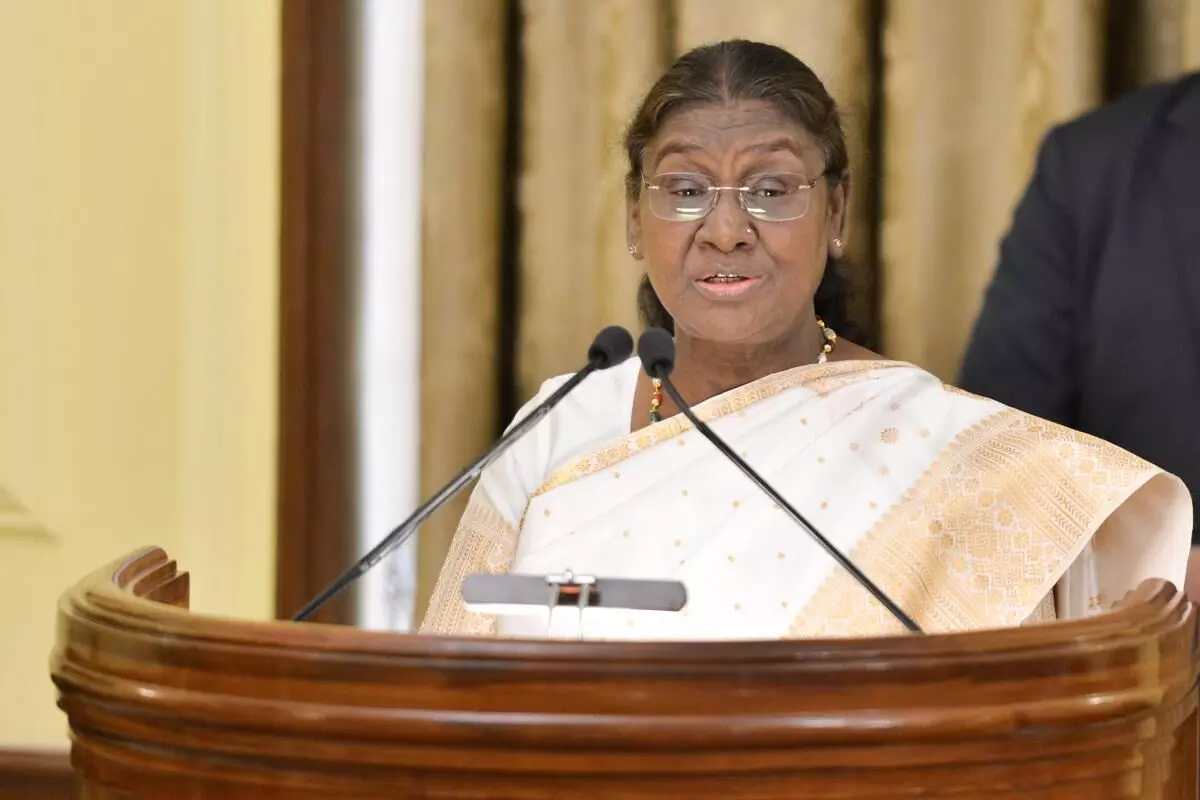India ready to face challenges, take advantage of fourth industrial revolution: Murmu
The role of institutions like J C Bose University of Science and Technology will be very important, she noted
By Newsmeter Network
Faridabad, Aug 21 (PTI) President Droupadi Murmu on Wednesday said India is ready to face the challenges posed by the fourth industrial revolution and take advantage of the opportunities that arise from it.
At the 5th convocation of the J C Bose University of Science and Technology here, Murmu said technology should be used for proper and sustainable development and public interest.
Today the world is in the era of the fourth industrial revolution. India is also ready to face the challenges of this revolution and take advantage of opportunities arising from it, she said.
In achieving this national goal, the role of institutions like J C Bose University of Science and Technology will be very important, she noted.
The president noted that the university has entered into agreements with many industrial and academic institutions over the past few years. Many multinational companies have also established Centres of Excellence on the university campus to train students.
Today, several avenues of progress have opened up due to the development of technology, she stated.
For example, access to the internet in remote areas has created online employment opportunities. But we should remember that technology should be used for proper and sustainable development and public interest. Its wrong use can be disastrous, she said.
The president appreciated the university for playing an important role in making the youth skilled and self-reliant.
The President said the university is named after great scientist and pioneer of modern science Jagadish Chandra Bose who was probably the first scientist in the world to prove scientifically that even trees and plants have feelings.
His revolutionary discovery changed the way we look at the botanical world, the president said, while urging students to take inspiration from his life and bring positive change in society through technology.
The convocation was presided over by the Haryana Governor and University Chancellor Bandaru Dattatreya.
The president conferred 13 PhD degrees and awarded two medals and certificates to the students.
A total of 1,536 students and researchers who completed their degrees in 2023 were conferred degrees, including 998 graduates, 525 postgraduates, and 13 PhDs.
Among the recipients, there were 874 male and 662 female students.
With 43 per cent of the degree recipients being female students, Murmu lauded the significant representation of women and expressed her desire to see the ratio improve further.
The president praised the university's efforts to promote research, including the introduction of the J C Bose Young Scientist Award and provisions for seed money for research.
Murmu said that the new National Education Policy focuses on promoting research and a scientific approach, with an emphasis on holistic education, the inclusion of research and internships in graduate courses, and the establishment of the National Research Foundation to promote quality research.
The president appreciated the university's initiative to implement the NEP and provide education aligned with its goals.
She also acknowledged the contribution of the Institution in making the youth skilled and self-reliant for over five decades and highlighted the impressive list of alumni who are excelling in various fields and supporting students financially and through mentorship.
Speaking on the occasion, Dattatreya commended the significant participation of women researchers in the convocation, highlighting their growing presence and contributions in the field of technology.
He emphasised the crucial role that technology plays in elevating the nation's standing on the global technological landscape.
Vice Chancellor Sushil Kumar Tomar said the university currently offers more than 60 diverse courses, reflecting its commitment to comprehensive education.
He said the university has taken proactive steps to implement the NEP, effective from the academic year 2023-24. This includes a special focus on fostering research work, encouraging startups, promoting innovation, and enhancing placement activities, he said.